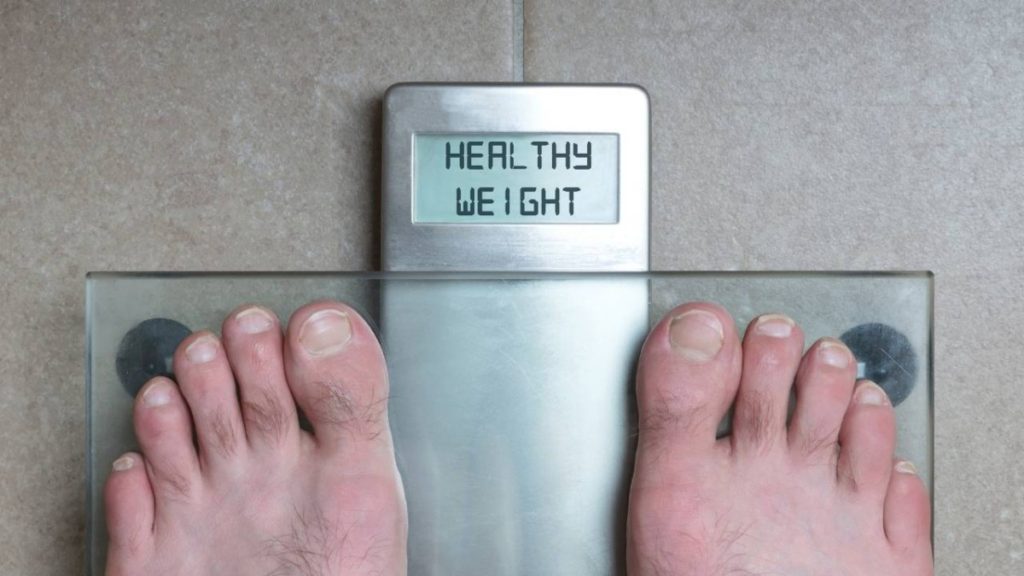
Understanding how far you can run in 30 minutes will give you important information about your fitness level and give you the ability to estimate running distances. 30 minutes might be the only time you have available within your schedule to exercise, so will it be enough to gain fitness, lose weight and burn fat?
The average running speed is 6mph (9.7kph) which would enable you to cover 3 miles (5km) in 30 minutes. If you increase your running speed to 7mph (11kph) you could run 3.5 miles (5.6km) in 30 minutes. How far you run in 30 minutes depends on your speed, fitness levels and effort level.
Furthermore, if you run outdoors you will need to take into account the terrain (inclines and declines), the weather conditions and other road users which can all impact your average speed and distance covered. However, if you run on a treadmill you can hold a certain pace making it easier to achieve a faster 30 minute run time because you don’t need to take these other factors into account.
Table of Contents
How Many Miles Can You Run in 30 Minutes?

The average beginner can run about 3 miles in 30 minutes at a speed of 6mph. However, this number will differ based on your individual level of fitness and running speed. If you can run at an advanced pace of 7.5mph, you should be able to run 3 miles in 24 minutes. This means that you would be able to run approximately 3.75 miles in 30 minutes.
The table below gives you the average distance someone can cover running at different speeds. However, the distanced covered is an estimate for someone running non-stop on a flat surface like a running track or treadmill. Your mile pace will increase depending on the type of terrain you run on. The more hills, the slower you will cover a mile. For the average 1 mile run time read this.
What to see the average time to run 3 miles for your age and gender? Read this post for all the times.
| Running Speed (mph) | Distance Covered 30 Mins (mIles) |
| Walk/Run 3mph-4mph | 1.75 miles |
| Slow Run 5mph | 2.5 miles |
| Slow/Moderate Run 6mph | 3 miles |
| Moderate/Fast Run 7mph | 3.5 miles |
| Fast/Very Fast Run 8mph | 4 miles |
| Advanced Run 9mph | 4.5 miles |

How Many km Can You Run in 30 Minutes
The average beginner can run about 5km in 30 minutes at a speed of 10kph. However, this number will differ based on your individual level of fitness and running speed. If you can run at an advanced pace of 14kph, you should be able to run 5km in 21 minutes. This means that you would be able to run approximately 7km in 30 minutes.
The table below gives you the average distance someone can cover running at different speeds. However, the distanced covered is an estimate for someone running non-stop on a flat surface like a running track or treadmill. Your 1 km pace will increase depending on the type of terrain you run on. The more hills, the slower you will cover a km.
Want to know what the average time to run 5km is for your age group and gender? Or if your a beginner maybe a 3km average time is more the distance you want to know.
| Running Speed (kph) | Distance Covered 30 Mins (km) |
| Walk/Run 4kph-6kph | 2.8 kilometres |
| Slow Run 8kph | 4 kilometres |
| Slow/Moderate Run 9.6kph | 4.8 kilometres |
| Moderate/Fast Run 11.2kph | 5.6 kilometres |
| Fast/Very Fast Run 12.8kph | 6.4 kilometres |
| Advanced Run 14.4kph | 7.2 kilometres |
If your new to running or you haven’t been running for a while then its best to start with beginner runs. These runs a easy runs where you don’t feel tired and exhausted after. For new runners a simple training plan with a good amount of weekly mileage will help you improve your fitness levels and boost your endurance.
If your looking to run longer milage then you need to get use to running a tempo run. This is the fastest pace you can hold for the entire run. Most people calculate their tempo runs as their half marathon pace or 10km average times.
Another method to improve your running distance is to introduce HIIT high intensity interval training twice a week. HIIT is done by running hard for 1 minute and then recover for 2 minutes. You then repeat this 10-12 times. This will help you become a more efficient runner and improve your running economy which will help you run further for the same effort.
Both tempo runs and HIIT should only be done once you have increased your weekly mileage to a good level and you have been running for at least 3 months. This is because both types of runs put a lot of stress on the body and can lead to injuries if you haven’t built up a good base level of fitness.

How Many Calories Do You Burn Running 30 Minutes?
On average, a male that weighs between 180-200lbs running at a 10-minute mile pace can burn 450-500 calories in 30 minutes. A female weighing between 160-180lbs running at the same pace can burn 350-450 calories.
Running may have many health benefits and be proven to benefit one’s mood. However, if your goal is to lose weight or work off a hefty meal, then the real question is, how many calories do you burn running for 30 minutes?
The truth is, how many calories you burn during a run comes down to a combination of factors, including how much you weigh and you fast you’re running. If your looking to lose weight fast, have you ever consider a Peloton? Here’s 21 reason to consider a Peloton.
Check out the table below to see how many calories are burned on a 30 minute run when these factors are calculated:
| Weight | Intensity Level (30-minutes) | Calories Burned |
| 150-160lbs | 6mp (10 minute mile) | 375 |
| 160-170lbs | 6mp (10 minute mile) | 400 |
| 180-190lbs | 6mp (10 minute mile) | 420 |
| 190-200lbs | 6mp (10 minute mile) | 445 |
| 200-210lbs | 6mp (10 minute mile) | 465 |
| 210-220lbs | 6mp (10 minute mile) | 490 |
| 220 plus | 6mp (10 minute mile) | 525 |

Can You Lose Weight Running 30 Minutes Every Day?
You can lose weight running 30 minutes everyday because you are burning around 400 calories. The amount of weight you lose depends on how often your run, your speed and body weight. But you can expect to lose around 0.5 pounds a week, 2 pounds a month or 7 pounds of body fat in 14 weeks.
It is definitely possible to lose weight by running for 30 minutes every day! According to Healthline.com, running burns more calories than nearly any other kind of exercise. When the human body engages in any physical activity, it needs energy to do so. Usually it gets this energy from glucose, otherwise known as sugar, taken from your daily meals.
However, when this glucose runs out after about 30 minutes of exercise, the body will begin to get fuel by burning through stored glucose! This is when weight loss starts to occur.
Running is considered one of the best types of exercise for burning calories because of how many muscles are pushed to exercise at their highest level all at the same time during the running movement.
The fact that running elevates the heart rate and requires the body to intake and process more oxygen all contribute to weight loss, as well. For this reason running is considered a cardiovascular exercise. Running for 30 minutes a day, for five days out of each week, can help you lose one pound a week as long as you are burning more calories than you eat.
What to know what the best cardio machine is for burning calories and losing weight? You might be shocked.

How To Improve Your Running Speed
To advance your running you want to be aiming for a sub-30 minute 5km or increase your average distance over time. To help improve your running here are some tips to consider in your running routine.
1. Find Beginner Runs
Beginner runs are designed to help improve your fitness levels, increase your endurance and boost your confidence. These runs are relatively short with a slow pace so you don’t feel exhausted after. They could be a combination of walking and running or mostly walking. Once your fitness improves run more than you walk until you can hold a run for the entire 30 minutes.
2. Rest and Recovery Days
Its important to give your body time to recover after runs, especially hard workouts or long runs. This will help reduce the risk of injuries and allow your muscles to repair themselves. Its recommended to have a rest day 1-2 per week. You can use these days to do other low impact aerobic activities such as biking, swimming or elliptical.
3. Include Shorter Run
You don’t need to run for the full 30 minutes you can break your run into two 15 minute runs. The short run means you can go all out and put in 100% effort. This will help improve your speed and running form. Once you become more comfortable with this type of run, you can gradually increase the time to 20 minutes and eventually 30 minutes.
4. Regular Runs
To improve your running you need to be consistent and make it a regular habit. Try to run at least 3 times per week with a day of rest in between. If you can’t commit to 3 runs per week, start with 2 runs and gradually increase the number of days as your fitness improves.

Should I Run 30 Minutes Every Day?
Now that we’ve found that calories can be burnt and weight can be lost by running, let’s go over the other benefits included in running so that you can decide if you should engage in this exercise for thirty minutes every day!
Below is a list of benefits that can be had from running:
- Muscle Groups Are Strengthened
- The Lung Capacity Is Increased
- The Heart Is Strengthened
- Mental Health Is Improved
Let’s take a closer look at each of these benefits!
Muscle Groups Are Strengthened
As previously mentioned, many muscle groups can be worked out simply by running for thirty minutes a day. This is because the human body needs to engage many different muscles at once and pushes them to their maximum ability when moving in a run. Here is a list of all the muscles that can be strengthened by getting into a 30-minute pattern of running:
- Hip flexors
- Glutes
- Core Muscles
- Quadriceps
- Calf Muscles
- Hamstrings
- Foot flexors
- Tensor Fasciae Late Muscle
- Iliotibial Band
However, even though running is great for strengthening your lower body don’t forget to add some strength training to your upper body. This will help you avoid muscular imbalances and injuries. Your physique will look better if you add 30 minutes of strength training to your running routine 2/3 times each week.

The Lung Capacity Is Increased
The muscles that are used to propel you forward in your legs, core, and hips are not the only ones getting a workout during running! Your respiratory muscles, like the intercostal muscles and diaphragm, are pushed, too.
When you run regularly, these muscles get more used to their function and perform it more efficiently, giving you the ability to get nice, deep, full breaths. It will also train your body to produce more capillaries, which are the blood vessels that deliver nutrients, oxygen and blood to the organs that need them.
V02 max is a measure of the max amount of oxygen that your body can consume per minute, and is used to indicate someone’s aerobic fitness. The higher your V02 the fitter you are and the better your body is at using oxygen. Research has shown that running for 30 minutes a day can improve VO2 max by up to 15 percent.

The Heart Is Strengthened
Any kind of exercise can lower your blood pressure, and running is no exception. In fact, the regularity of choosing to run for thirty minutes every day alone can benefit your heart. While your other muscles are getting stronger through the training that running provides, your heart is doing the same.
It is learning to take in more blood and pump it out more quickly in order to provide energy to your hard-working muscles. A stronger heart means lower blood pressure in the long run (no pun intended!) and it can decrease your risk of stroke and heart disease.
A study was done with 3,413 participants to compare the benefits of running versus walking. The results showed that those who ran had a 27% lower risk of dying from cardiovascular disease and a 30% lower risk of all-cause mortality, as opposed to those who just walked. This number was significant increased from those how didn’t exercise at all.

Mental Health is Improved
According to WebMD, running is proven to lower anxiety and depression! This is because blood is circulated all throughout the body during the running exercise, and this includes the flow of blood being increased to your brain.
Therefore, the part of your brain that releases chemicals which make you feel good works much better. It also strengthens the area of the brain that deals with stress by upping the amount of norepinephrine, the stress-response chemical produced in the body. Studies even show that creativity can be boosted for as much as two hours after a short thirty-minute run!
A study revealed that people who ran for 30 minutes or more a day had half the rate of depression as those who didn’t run at all. Running can also serve as a distraction from intrusive or negative thoughts, and it can give you time to work through problems in your life that are causing you stress. It can be a form of “moving meditation” that allows you to focus on the present moment and clear your mind.
How Far Can You Run in 30 Minutes Summary
To sum it all up, the average person runs somewhere between 2 and 4 miles in 30 minutes depending on their fitness levels. You can run 30 minutes everyday as this is recommended by all health experts to significantly improve your health and wellbeing. If your looking to lose weight and burn belly fat then running for 30 minutes will help your burn enough calories to create a calorie deficit.



